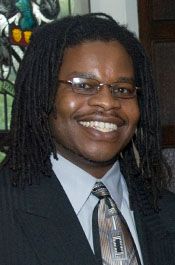
Cabrini has experienced a growth of minority students on campus in the past few years. What’s the reasoning for this?
In fall 2002 there was 145 minority undergraduate full-time students represented out of a total of 1,300 undergraduate full-time students.
Fast forward to fall 2012, there were 270 minority full-time undergraduate students out of a total of 1,298 full time undergraduates. Minority enrollment has nearly doubled in the last 10 years.
“Cabrini’s growing, that’s all,” Saleem Brown said. “More people are getting to know about it.”
Better advertisement, Brown says, has helped increase the amount of underrepresented groups at Cabrini.

Dr. Darryl Mace, chair of the history and political science department, also gives the improvement of advertisement credit for bringing in more underrepresented groups.
“When you have increasing numbers of students that are a particular affinity group that are matriculating to campus, I think what happens is word of mouth spreads that this is a comfortable environment for students of color or LGBT students,” Mace said.
“It’s not a strategy,” Brown said.
If not a recruitment strategy then what is Cabrini College doing to increase diversity on campus?
“The inclusivity council is a group of faculty staff and administrators that came out of a presidential initiative when Dr. George kind of issued a call that began with the diversity task force,” Mace said. “[About] three years ago, the President created a diversity task force that worked on recommendations as to how to make this a more welcoming and inclusive environment.”
Over the years there have been some racial incidents on campus that have rubbed some current students the wrong way. Ashlee Grazier, junior business administration major, was a victim of a hate crime on campus.
Grazier discovered the derogatory slur “N—a” written on her whiteboard outside of her dorm room door.
“It made me feel like I couldn’t do anything because I told people, I told Public Safety, I talked to [Residence Life] and it was just like a halt because they didn’t know what to do,” Grazier said.
The campus response, in her opinion, was slow and took too long.
“It took them a long time to say something but if I would have handled it a different way if I would have been more boisterous. Then something else would have happened,” Grazer said. “It took about three or four more situations for them to say something, do something, or for them to even send out an email about it,” Grazier said.
In 2005 Mace came to Cabrini College to several racial incidents.
“I was unsatisfied with the college’s responses to those racial incidents, and I went to the Dean of Academic Affairs at the time and told him that I was very dissatisfied with the college’s response,” Mace said. “Next thing I knew, I was in a meeting with the Dean and three other vice presidents and they were asking me what they should have done.”
From then on Mace has been a part of the school’s initiative to be more proactive about informing people about incidents like this and opening up the dialog.
“In my opinion, a lack of information leads to misinformation,” Mace said. “This is a small campus and rumors fly, so in my opinion I think it’s better to be as proactive as can be while respecting confidentiality of people.”
Only in the past few years has Cabrini had conversation about the incidents that have happened. Also, Mace believes more students are coming forward because more students are outraged about racial incidents. They are now reporting these situations instead of transferring or hiding what happened to them.
More people are comfortable with the conversation and that’s a good sign, according to Mace.
“You only live in the classroom a certain number of hours a day you live on campus all the time,” Mace said.



